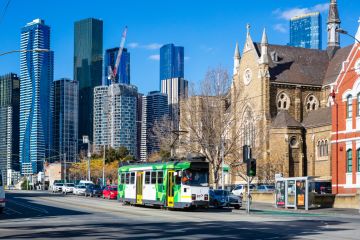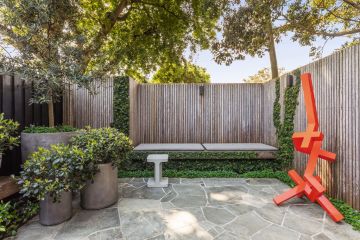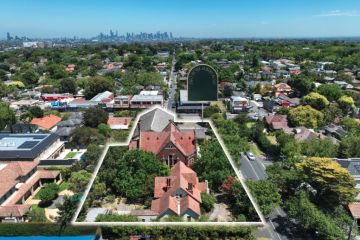Why landscaping shouldn't be an afterthought when buying a new home
A stunning garden is one of the best assets to team with your brand-new house. Well-planned back and front yards can really add value to your property and provide a place where you can entertain friends, plant some veggies or escape for some quiet time.
When to start your garden plans
Know what you want from your garden before you take the first step of choosing your block, advises Crosbie Lorimer, landscape architect and managing director of Clouston Associates.
“I think the most important thing is actually thinking about that before you buy the house because essentially the average lot size is reducing,” he says. “We are filling more of it with a house and less of it with a garden, so the backyards are getting tiny. You have really got to think about how much a garden matters to you when you are buying the property.”
 Homeowners can take a DIY approach or hire landscape architects to do the job.
Homeowners can take a DIY approach or hire landscape architects to do the job.
Size does matter
The size of your yard should be determined by your lifestyle. A family with children and dog-owners will need lots of activity space, while people who love to entertain outdoors will need room for a dining table, a decent barbecue area and perhaps a pool.
“These days no one has got the view of buying new lots where you can play backyard cricket, but just being able to do some of the basics like getting out in the sun in the winter, or entertaining for the family with barbecues and so on, that actually has some bearing on the size,” says Lorimer.
What to budget
Most home and land packages offer various landscaping options with the basic plan including fencing and simple hedges. Upgrades may include mature trees and plants, plus the installation of garden features such as privacy screens and pathways.
Homeowners can take a DIY approach or hire landscape architects to do the job. Either way, they will still need to allocate some serious funds, cautions Lorimer.
“There’s a tendency among home buyers to underestimate the cost of a practical new garden,” he says. “A couple of thousand dollars may get you turf and some planting, but even a small, well-appointed garden can readily cost $20,000.”
 Well-planned yards provide a place where you can entertain, plant veggies or escape.
Well-planned yards provide a place where you can entertain, plant veggies or escape.
What to plant
Start by checking out your soil. If it’s mainly builders’ rubble, you’ll need professional advice on how to get it back to a healthy condition.
When it comes to selecting the right plants, take a good look around the neighbourhood and make a note of what’s thriving in the area. Check out your council’s website to see which plants are recommended for new developments. You can also visit a local nursery armed with the size and orientation of your block to get tips on what plants are most suitable.
Thankfully you don’t need a green thumb to be the proud owner of a flourishing garden. Do some research, choose your plants wisely and the results will speak for themselves.
We recommend
States
Capital Cities
Capital Cities - Rentals
Popular Areas
Allhomes
More







